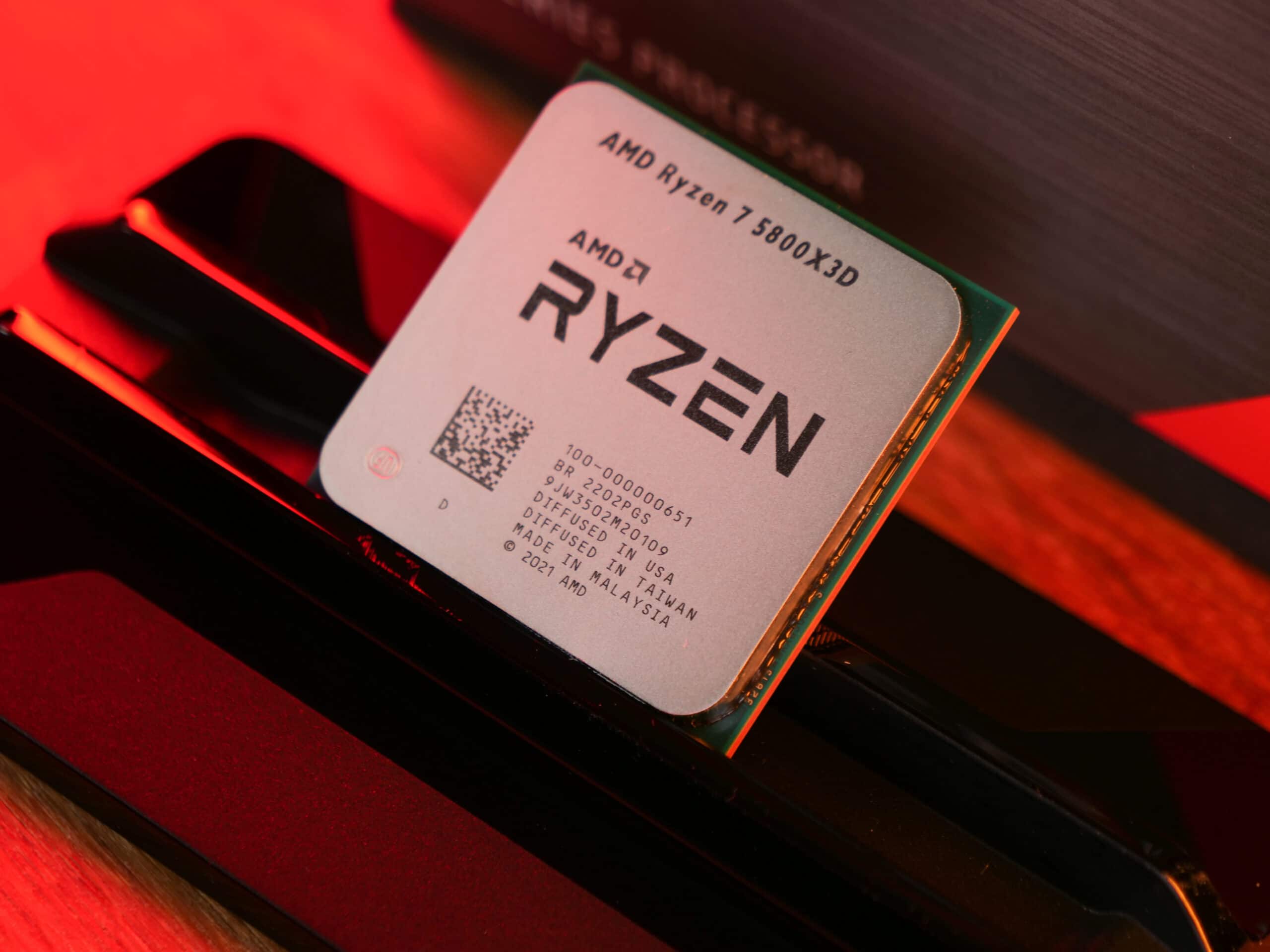Ryzen 7 5800X3D: Significantly lower temperatures without a heat spreader

Pictures and temperatures of a decapitated Ryzen 7 5800X3D were published on Twitter. Even though AMD’s latest processor is soldered, removing the heat spreader seems to be worth it.
With the Ryzen 7 5800X3D, AMD introduced a new processor in April that uses a 3D V-Cache for the first time. In concrete terms, this means that another chip is housed above the CPU itself, which serves as an L3 cache and thus significantly enlarges it. As a result, AMD promises more performance on the one hand, but on the other hand the chip should create additional distance to the cooler and thus make heat exchange more difficult.
Away with the heat spreader
Despite the additional heat barrier, it still seems worthwhile to remove the subsequent heat spreader on the Ryzen 7 5800X3D. At least that’s what Twitter user @Madness7771 reports, who published pictures of a beheaded Ryzen 7 5800X3D yesterday. The solder with which the CPU and IHS were actually connected with good heat conduction is clearly visible.
In addition to the pictures, @Madness7771 has also published test results showing the temperatures with and without the heat spreader. Too many details about the test scenario were not announced – all that is known is that the CPU was heated with Forza Horizon 5 and cooled by a Noctua NH-D14. In addition, the case used apparently only had one case fan.
Also exciting: Radeon RX 7000: AMD confirms higher power consumption with RDNA 3
In this scenario, the Ryzen 7 5800X3D allegedly only ran at an average of 67°C without a heatspreader – eleven degrees less than the unheaded model. There is also a clear difference in the maximum temperature of ten °C, which means that the CPU can consistently maintain the maximum clock on average. In principle, beheading the Ryzen 7 5800X3D seems to be worthwhile – even if the associated risk doesn’t really outweigh the advantages.
Source: via Videocardz
Reference-www.pcgameshardware.de